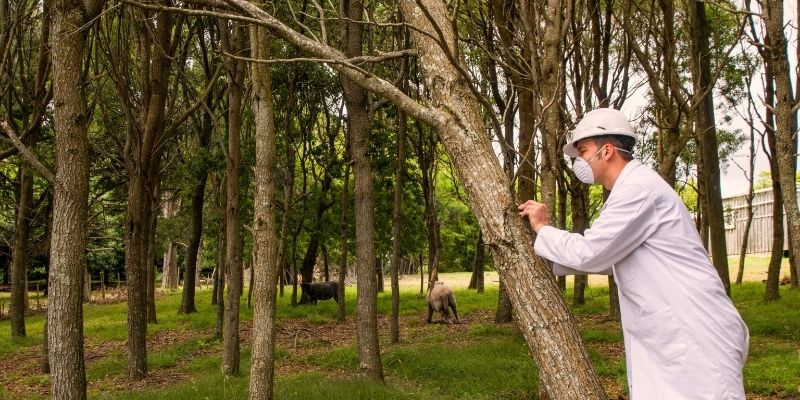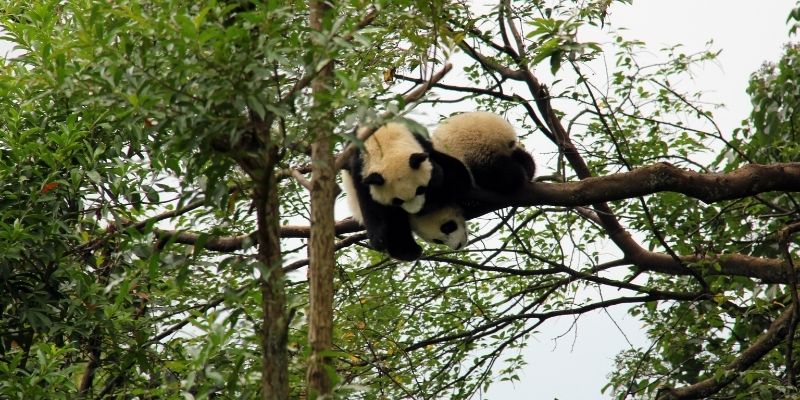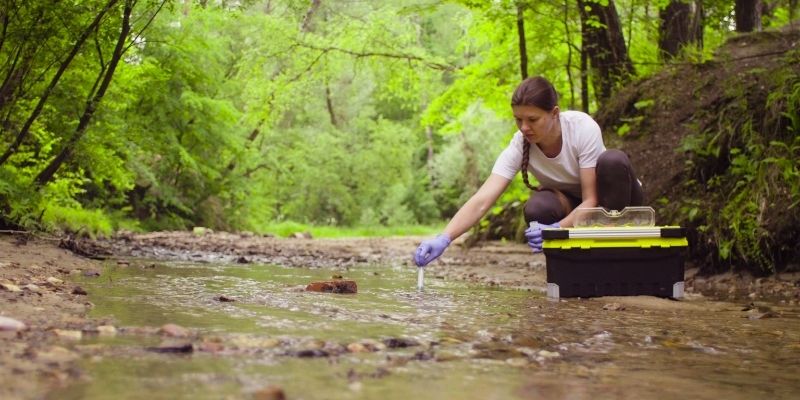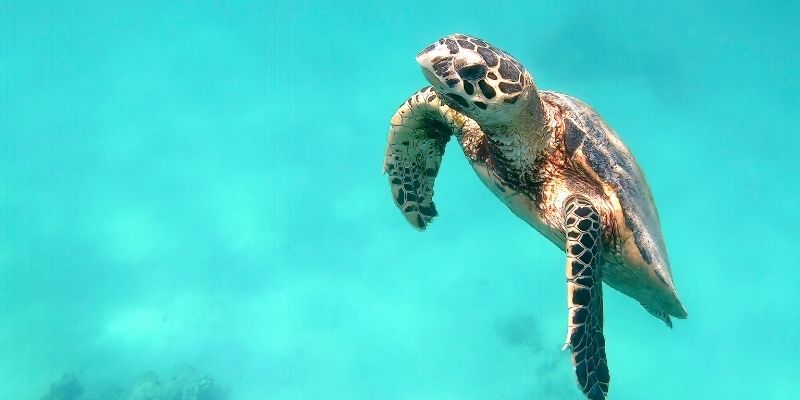Animal Conservation: Your Questions Answered!
If you would describe yourself as a lover of animals, like most of us, the last thing you would want to see is the end of the existence of the many beautiful animal species around you.One of the greatest things about getting outdoors and taking walks in nature is the off chance you will see wild creatures up close in their natural habitats. What if this was no longer the case, and the world was left bereft of fascinating and beautiful animal life?
Well, besides being an incredibly sad state of affairs, the lack of animal life can have catastrophic effects on the world at large. This is why globally recognised societies like the National Geographic and influential public figures all stress the need for the conservation of wild animals.
But what is the importance of animal conservation exactly, and what does it all mean? There are many questions people have surrounding this significant topic, and to help you understand it, we’ve answered the most common questions for you below!
What Is Animal Conservation?
These days, almost everywhere you look there is some form of messaging or advertisement stressing the importance of conservation efforts for animal species. Though, many people still aren’t sure what that entails exactly. If you too find yourself wondering ‘What does animal conservation mean?’, it’s the processes and actions relating to the protection of ecosystems and environments in order to safeguard the animal species that inhabit them.

Why Should We Conserve Plants and Animals?
So, we’ve established the animal conservation meaning, but why is animal conservation important exactly? Of course, it’s nice to see wild animals and plants thriving, but why should we conserve animals and plants? The reason we need to protect and preserve the lives of wild plants and animals is that they are essential for a healthy ecosystem. These ecosystems are areas in the world where different groups of animals and plants are found and interact. This activity has helped establish the natural environments we see today like forests and rainforests, mountains, grasslands, and ice/snow regions.
If a species of plant or animal should come under threat, it’s a clear signal that the ecosystem it inhabits is out of balance, and that can lead to critical consequences. Should the balance of an ecosystem come unstuck, the loss of one species can have a ripple effect and take out others.
There have been many instances where predator species have become extinct or near-extinct, allowing their natural prey to thrive. While this sounds like a win for the prey, their population increase can take away precious food resources from other animals in that ecosystem and trigger their decline.
The issues stemming from ecosystem imbalance affect us humans too, as an imbalance can have a detrimental impact on the health of the environment. That’s why, animal conservation is essential for us to have access to clean air and water, which are vital for our health, and fertile land for agriculture, which is critical for food consumption. A diverse range of plant life is also imperative for medicines.
When Did Wildlife Conservation Start?
Public interest in animals and wildlife conservation in the UK goes as far back as the 19th century. However, there are plenty more key dates that give you a better idea of when animal conservation and other conservation initiatives were established: - 1872 – The first Wild Birds Protection Act was established
- 1895 – The creation of The National Trust for Places of Historic Interest and Natural Beauty
- 1889 – The creation of The Royal Society for the Protection of Birds (RSPB)
- 1912 – Formation of The Society for the Promotion of Nature Reserves
- 1919 – The Forestry Commission is set up
- 1951 – The first National Parks are established in the Peak District, Snowdonia, Lake District and Dartmoor

What Are Some Examples of Animal Conservation?
Luckily, despite there being substantial risks identified to numerous species around the world, there is monumental activity taking place across the globe to conserve and sustain animal and plant life. More specifically, examples of previous successful animal conservation methods include:
- The addition of several new Marine Protected Areas (MPAs) like the Shark Reef Marine Reserve in Fiji which was instated for the protection and research of sharks
- New laws were introduced in 2014 to protect five species of shark and two species of manta ray
- “Land-sharing” method of conservation among other activities leads to the stabilisation of carnivore populations in Europe
- 27 macaws were released into the Biosphere Reserve of Los Tuxtlas in southern Veracruz, accompanied by education programmes for the local public to prevent a repeated decline in population numbers
- The introduction of bans on wildlife crimes
What Is Animal Biology and Conservation Science?
This is a form of scientific study that focuses on examining the earth’s biodiversity with the aim of learning how to protect plant and animal species, habitats, and ecosystems.By studying animal biology and conservation science, you will come to comprehend the diversity of animal species, their form and their function. You will also see how different species have evolved and adapted to various environments in terms of their ecology, behaviour and physiology.
Overall, you will gain a detailed understanding of the biological makeup of animals and plant life, and how best this knowledge can be harnessed to guide conservation efforts, understand and communicate the impacts of pollution and climate change on animals.
As such, this area of study is ideal for those looking to get into animal conservation jobs.

How Can Animal Species be Conserved?
If you’re wondering how to conserve endangered animals and plants, this takes a combination of approaches. At the top level, legislation like the Endangered Species Act can help prevent detrimental activities on a mass scale, as this restricts harmful human activities that could damage species and their habitats. The same can be said for the protection of public lands and water envrionments that are home to an abundance of animal life. As these places limit human activity to provide a suitable habitat for species to thrive.
However, there are plenty of ground-level actions that can be taken that come under the umbrella of ‘responsible public practices’, that the general public can do to help animal conservation methods. You may not realise it, but there could be things you are doing day-to-day that are having a negative effect on the animals that exist around you.
To boost animal conservation efforts, you are advised to:
- Use less plastic
- Eat a plant-based diet
- Adopt the mantra ‘reduce, reuse, and recycle’
- Show your support for laws that protect wild animals and habitats
- Be respectful when visiting public lands where wild animals exist and help keep the environment clean
- Educate yourself about invasive species and take part in conservation methods that stop their spread
How to Get into Animal Conservation?
Aside from the day-to-day things you can do to reduce your impact on wild animal species, there are many ways you can actively contribute to animal conservation methods and awareness.If you’re wondering how to get involved in animal conservation, you could perhaps combine existing interests with this passion. Raising awareness of the importance of animal conservation is a huge part of the battle, as the threats to animals are mostly due to human behaviours.
Animal conservation art or photography, for instance, would be a great way to combine your creativity with delivering an important message. Alternatively, those who have a way with words can use their literacy skills to communicate the concept of animal conservation to a wider audience.
We’ve all read inspiring animal conservation quotes, many of which we can thank Sir David Attenborough for, however, you could use your writing skills to create a poem on conservation of plants and animals or a short story on animal conservation.
If you want to enhance your understanding in a bid to better educate yourself and others, you can study a myriad of animal conservation courses online. For the younger generation, animal conservation for kids can take place in the form of forest school programmes that instil an understanding of the importance of animals and plant life from a young age.
Animal conservation gifts and holidays are also becoming increasingly popular and are a great way to get others inspired to do more to help conserve wildlife.

How To Work in Animal Conservation
If you are looking to make a difference in a professional capacity, you’re no doubt wondering how to get a job in animal conservation. This is an ever-increasingly popular line of work as more people develop an understanding of both the importance of animal conservation and just how much work needs to be done to help rebuild species populations. There are many ways you can get into animal conservation jobs, depending on the role you aspire to have. If you’re wondering how to get into wildlife conservation without a degree, animal conservation volunteering opportunities exist in abundance that can help you get in with an organisation and work your way into a paid animal conservation role.
It really is about who you know in conservation, so, it’s very wise to gain experience and network. This can also lead to animal conservation jobs abroad if your ambition is to travel through your career.
Otherwise, the best way to start paid employment in animal conservation is to study relevant courses and gain recognised qualifications. This, quite simply, proves to organisations and hiring managers that you have the exact skills and knowledge they are looking for.
Study Animal Conservation Online!
Animal Courses Direct is the largest organisation in the UK offering Ofqual regulated animal courses that meet rigorous government regulated standards. If you’re looking to kick-start a career that has the protection of animals, ecosystems and habitats at heart, our online animal conservation courses are exactly what you need.
From The Effects of Plastics on Marine Wildlife to Bat Ecology and Conservation, there are plenty of ways you can narrow your focus to help specific species and natural habitats. You could also focus your learning on the education of others through Conservation and the Media, or by leading a Forest School Programme.
Alternatively, you could study the wider problem at large by exploring Biodiversity Worldwide, and Ecological and Conservation Principles.
Find out more about how Animal Courses Direct can help you start a career in animal conservation by calling our Course Advisors now on 01202 006 040, contact us online or click below to view our animal conservation courses in more detail!
Also, if you adore animals, you can keep track of all upcoming animal awareness days and events with our FREE calendar! Download it here.
.jpg)
















